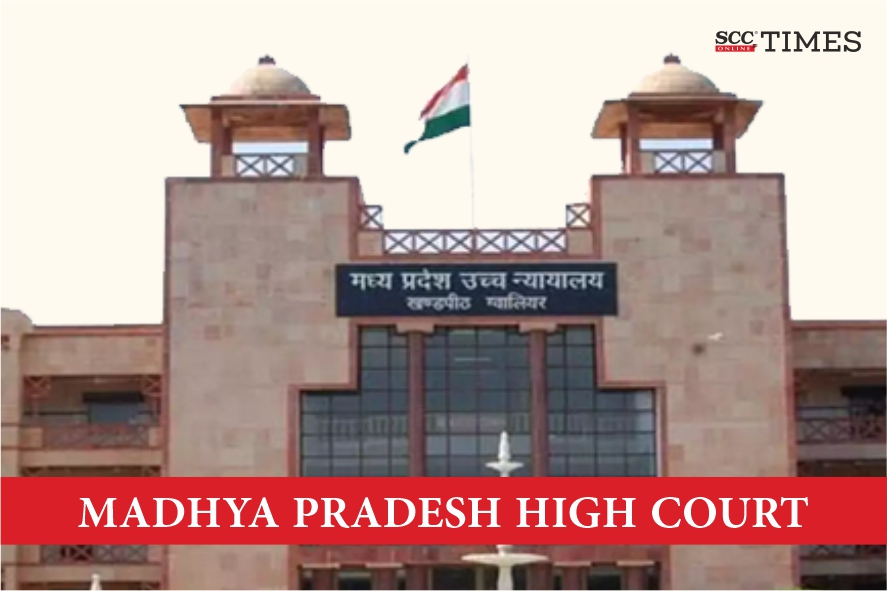Madhya Pradesh High Court: In an appeal against the writ court’s order which denied to transfer investigation in 2007 fake encounter case to the Central Bureau of Investigation (CBI), the division bench comprising of Vivek Rusia and Rajendra Kumar Vani, JJ., affirmed the writ court’s order and disposed of the appeal with a directive for increased compensation cost from Rs. 20,000/- to Rs. 1,00,000/- due to the police’s insensitivity.
In the instant matter, the appellant (now deceased) challenged the order dated 16-11-2010, which directed the Crime Investigation Wing (CIW) of the State Police to investigate rather than the CBI as requested by the appellant. The appellant, an illiterate 56-year-old residing in Laxmi Colony, Dabra, had three sons. On 22-04-2005, the police, including SHO R.S. Bhadauriya and other officials, took all three sons into custody. The two sons were released by 27-04-2005, but the third son remained in detention. On 05-02-2007, a newspaper article reported that two dacoits were killed in an encounter. The appellant recognized her son’s photograph as one of the two dacoits. The petitioner alleged that her son was killed in a fake encounter by the police and requested an independent investigation by the CBI.
The State police denied the allegations and stated that the encounter was genuine. An initial Magisterial inquiry and subsequent reports confirmed that the appellant’s son was alive and imprisoned in a separate case. The State’s position was that the investigation conducted by CID, found appellant’s son to be a dacoit involved in criminal activities, which led to the closure report being filed.
The Writ Court ordered the investigation to be conducted by the CIW under a Superintendent of Police. The Writ Court hoped the investigation would be conducted impartially and directed the State to pay the petitioner a cost of Rs. 20,000/- for inaction on her complaint. The Writ Court did not find sufficient grounds to warrant a CBI investigation but provided the petitioner the option to challenge the investigation if dissatisfied.
The appellant’s legal heirs argued that the writ court should have directed the CBI to investigate due to allegations against high-ranking police officials. The appellant highlighted that the investigation was inadequately conducted and that the closure report had not been examined by the Sessions Court for over 12 years. The primary issue was whether the writ court’s decision to hand over the investigation to the Crime Investigation Wing instead of the CBI was justified.
The Court noted that the appellant’s case relied heavily on the newspaper photograph and the CID investigation revealed that appellant’s son was indeed involved in criminal activities, which validated the encounter as legitimate. The Court found insensitivity in the police department for not promptly addressing the petitioner’s complaint and for the delay in the examination of the closure report.
The Court agreed with the Writ Court’s decision to not transfer the case to the CBI given the context and available evidence, however criticised the delay in examining the closure report. The Court stated that it is of significant concern that the closure report remained pending due to the Investigating Officer’s absence. The Court further stated that the appellant’s death before resolution and the failure to pay the ordered cost reflected the insensitivity and inefficiency in handling the case.
The Court increased the cost from Rs. 20,000/- to Rs. 1,00,000/- due to the police’s insensitivity and directed the Director General of Police, M.P., to investigate the delay and the non-appearance of the Investigating Officer before the Special Court. The Court also recommended to action against the Investigating Officer for his prolonged absence from the Court.
[Janka Kewat v. Union of India, 2024 SCC OnLine MP 4996, Decided on 09-07-2024]
*Judgment by Vivek Rusia
Advocates who appeared in this case :
Shri Jitendra Sharma and Shri Sushil Goswami, Advocate General, Counsel for the Appellants
Shri Ankur Mody, Addl. Advocate General, Counsel for the Respondent No. 1 — 4/State, Counsel for the Respondent No. 2






